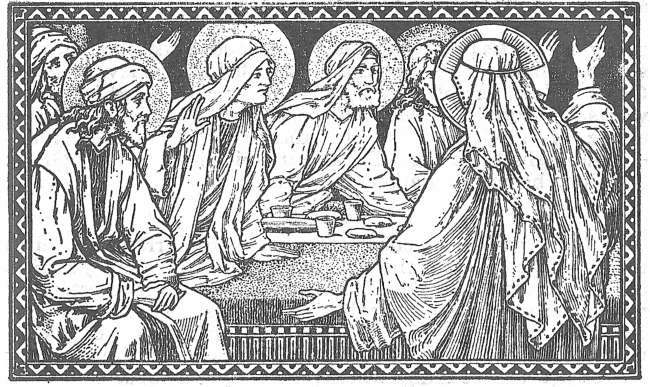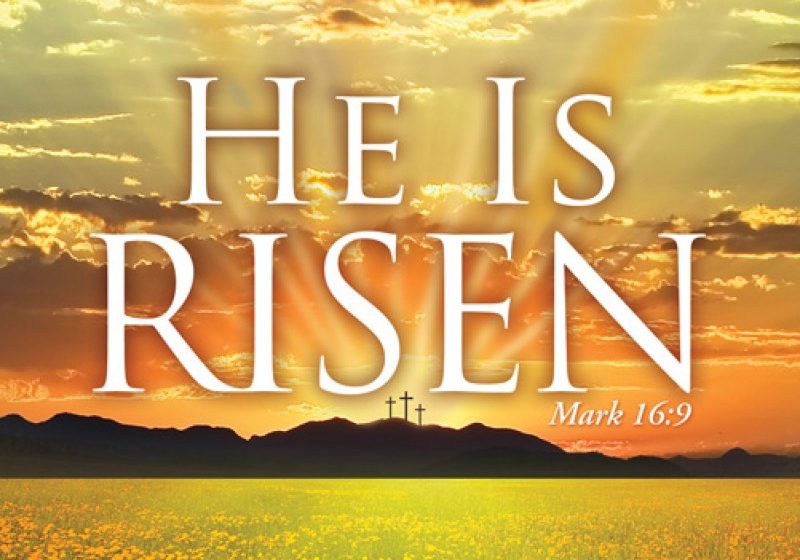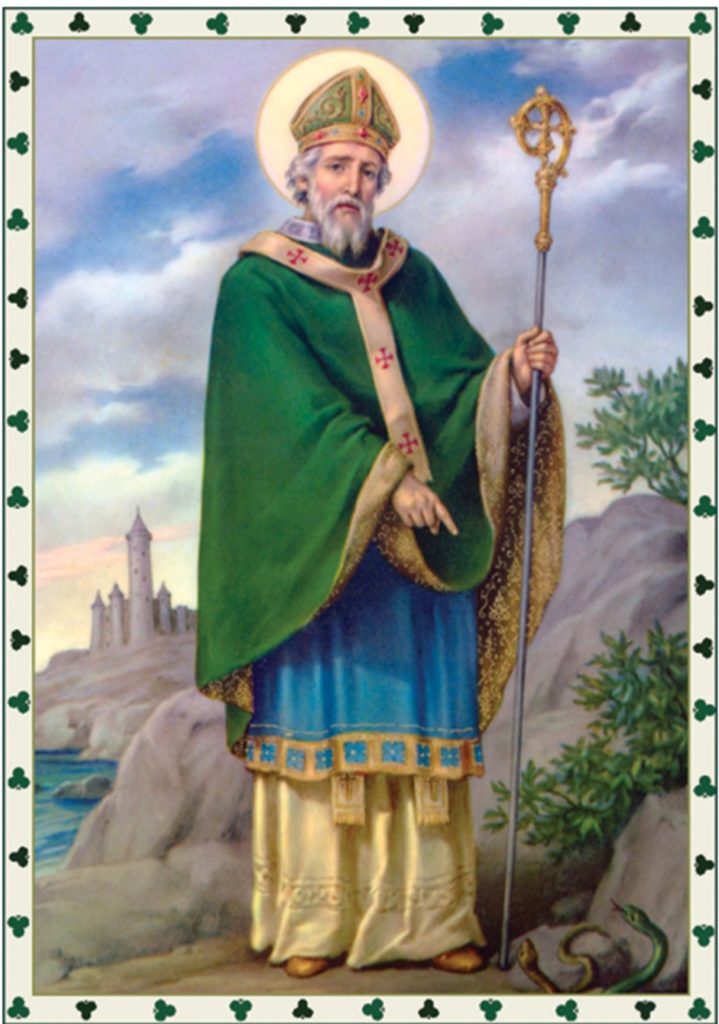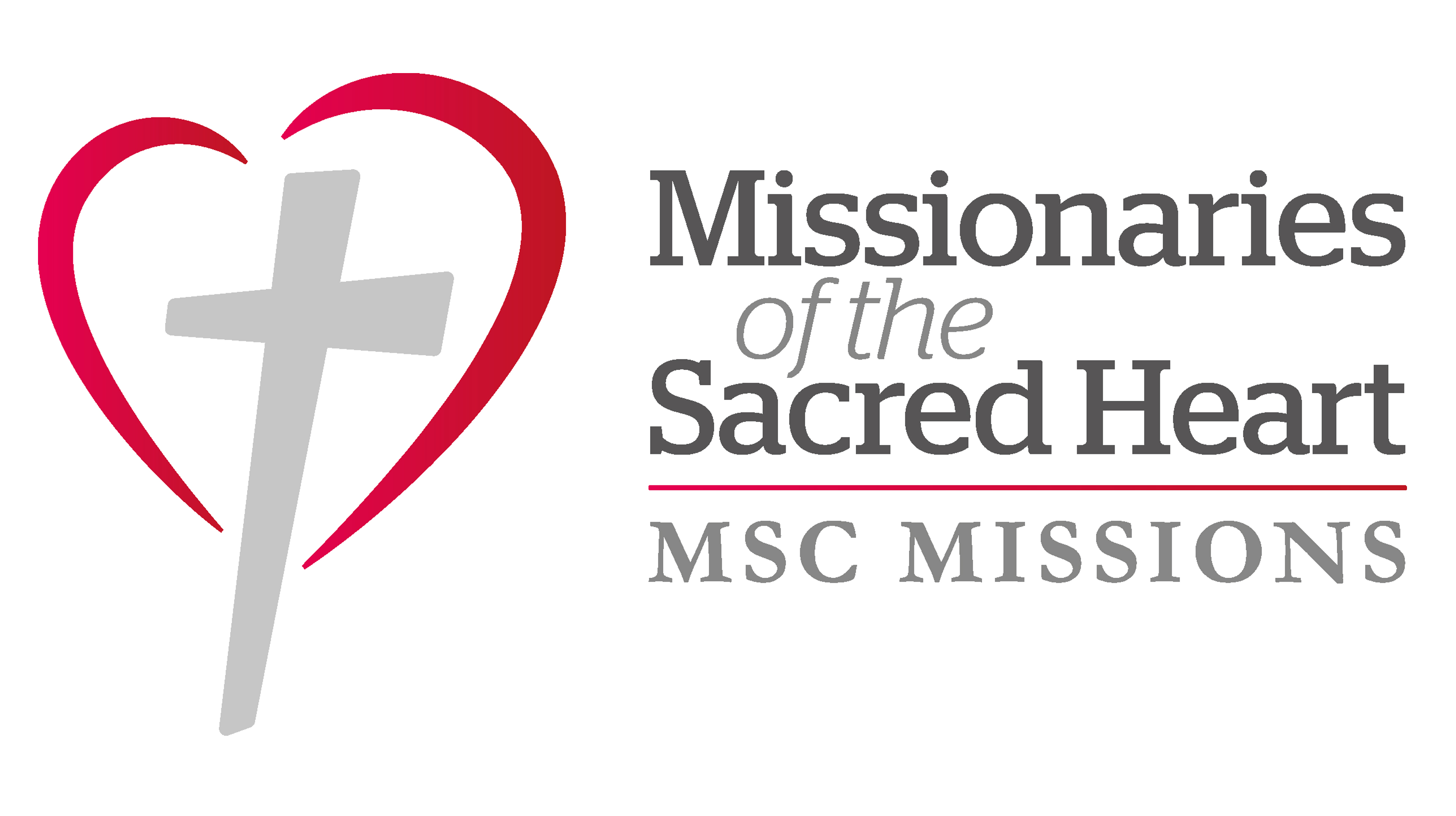Jun 16, 2018
Reflection: Have full confidence. The kingdom of God is coming, even if slowly. One must live with the mystery of God. (619)
Gospel (Mark 4:26-34). It is the smallest of all trees; yet it grows into the biggest shrub of them all.

In this reading, we have two parables on the growth of the kingdom of God from small beginnings. In both, its beginnings are compared to a seed sown. The sower, of course, is Christ. The first parable speaks of the kingdom growing of itself, automatically, without human intervention. Christian understanding of God’s activity in the spread of the Gospel speaks the Gospel message not as human words, but in reality as the word of God which is at work in believers (see 1 Thessalonians 2:13).
Today, many within the Church are impatient with the slow pace of change. They want things to happen faster, and according to their wishes.
Today’s readings may have a few lessons to teach in this regard. One is that, at best, we are only co-operators with God. God is at work silently; the seed sown by faith can be working away quietly.
A further message is that we should always be full of confidence, confidence which has the gift of the Holy Spirit within each believer and within the Church as its foundation and its guarantee.
A final message, but far from the least, is recognition of the centrality of the word of God to Christian faith and practice. We often refer to Scripture as the word of God, and people call for more access to this word of God. But, to recall Paul’s words to the Thessalonians (1 Thessalonians 2:13), the word of God is God’s message received in faith and working through grace within each individual believer and in the Church.
“Such is the mystery of the kingdom of God.”
All of this calls for an atmosphere of prayer and devotion, one in which we can work for true Christian living.
What has been presented in the various parables of the kingdom in the Gospel accounts gives only individual aspects of the kingdom, and the presentation of the growth of the kingdom as a seed growing of itself in the parables of today’s gospel reading is no exception. These parables do not imply that human activity is not required for the coming and the growth of the kingdom. We pray daily to God that his kingdom may come, which for Christian belief as for Judaism implies that his will be done here on earth. Jesus laboured for the coming of the kingdom through his teaching and his miracles, as in other ways. So did the apostle Paul. Necessity was laid on him to preach the Gospel, and the same held true for the Church down through the centuries.
The Church herself, and all believers, must do likewise in any age, including our own. The Church authorities must be in contact with the faithful, prepared to answer their questions and to be aware of their anxieties concerning religious matters whether of faith or morals, including points of moral practice. They must make it clear that the concerns of the faithful are being listened to, even when these disagree with Church teaching or her position on certain matters. But at the same time, the Church must proclaim the Gospel message in its saving entirety, and enter into the necessary dialogue with a secular society possibly in disagreement with it on certain matters, such as those relating to sexual issues, to marriage, and others besides. In issues such as these, lay voices can carry greater conviction than those of clerics, although not too many of the laity may be keen on taking on such a task.
But such is the mystery of the kingdom of God, from its beginning to our own day, a seed growing of its own, but still calling for proclamation, promotion, and defence.
Fr Martin McNamara MSC
May 19, 2018
Reflection: The Holy Spirit and Dialogue with the Modern Age
Gospel (John 15:26-27; 16:12-16). The Spirit of truth will lead you to complete truth.

In recent decades, in Catholic spirituality and liturgy there has been renewed interest in the role of the Holy Spirit in Christian life. This is particularly in evidence in the new Eucharistic prayers. One of them recalls that Christ, by rising from the dead, has destroyed death and restored life. They remind us that we may live no longer for ourselves but for him; he sent the Holy Spirit from the Father, as his first gift to those who believe, to complete his work on earth and bring us the fullness of grace. Before the words of consecration in the new Eucharistic prayers, the celebrant prays to God the Father to send the Holy Spirit on the offerings so that they may become the Body and Blood of Christ, and after the consecration, a similar prayer is addressed to the Father to look upon this sacrifice and by his Holy Spirit to gather all who partake of the Eucharist into the one Body of Christ, a living sacrifice of praise – a prayer that the community becomes a living Eucharist.
Central to New Testament and Christian teaching is the unity between God the Father, the Son, the Holy Spirit, and creation. The death of Christ is evidence of God’s love for the world. The life of the Father is fully in the Son, and Jesus’ wish is that this his own life and love, and that of the Father, be in believers.
For dialogue with our own age, this implies that all that is good in the world is from God, loved by God. All the manifold gifts and traits of humanity are from God, even in those who may not advert to this, or even believe in God – all the social concerns, the service of one’s fellows, all those gifts Paul speaks of in his letters.
Believers are carriers of this message in our own day or in any other. But together with this very positive message, and the call of believers to be witnesses to it, Jesus makes it very clear to his disciples that they should be prepared to bear this message in hostile surroundings and even in persecution. Part of the hostility they are told to be prepared for is indicated as attacks on Jesus’ person and message. They will need strong faith conviction, and this, Jesus promises, will come through the Holy Spirit, the Advocate for the truth of Jesus’ message, and the Comforter in their trials. The two great commandments according to the First Letter of John are faith and love of the neighbour, faith in Jesus Christ as Son of God against all opposition.
All this can be of significant help to us to day in our dialogue with questions of our age.
Fr Martin McNamara MSC
May 5, 2018
Reflection: God Loves

Our readings today turn things upside down a bit.
In our first reading, we see Cornelius and his household receiving the Holy Spirit first and then being baptized. The second reading tells us that God loves us before we love God or our neighbour. In the Gospel reading, God abides in us and invites us to abide in God.
God can do whatever God wants. However, we can imagine limits on God’s power. We sometimes say things to ourselves like, “God could never love me”, or “God will only love me if I do x or stop doing y”.
These are illusions and untrue. Jesus tells us that God loves us as we are. It is because God loves us that we can love, grow, and change.
We cannot earn God’s love. Rather we receive it as a free gift. This is the source of our joy. For this reason, we are a grateful people, a humble people, a people who give thanks to God. Eucharist means to give thanks. If we allow ourselves to be forgiven and loved, then the Spirit of God’s love will abide in our hearts and can flow out to others and back to God.
Fr Con O’Connell MSC
Apr 9, 2018
Reflection: Walk in the Light. Sin, repentance, forgiveness of sin.

Gospel (Luke 24:35-48). So you see how it is written that Christ would suffer and on the third day rise from the dead and that repentance and the forgiveness of sins be proclaimed in his name to all nations.
This is Luke’s account of the last appearance of Jesus to the disciples. For the disciples this encounter with Jesus was to be a new beginning. His work was to continue to all peoples, with its central message of repentance for sin, accepting the gospel message. The message was for all nations, not just the Jewish people, to the ends of the world as put in other gospel texts. It is worth noting that in his Confession St Patrick’s dwells on these texts and thanks God that he had the mission of bringing the Gospel message to the “ends of the earth”, which for him was Ireland.
Today’s readings present a golden opportunity to reflect on what the Church, the Christian message, is centrally about and in the light of this to see what message they have for our own day, for the society in which we live. The second reading today is from the First Letter of John. Both this letter, and the Fourth Gospel, speak a lot about walking in the light. Christ is the true light. He reveals sin. The Apocalypse (Revelation) of John speaks of the Risen Lord, the Son of Man, walking among the candlesticks (the different churches) praising what is good, exhorting the lukewarm, and calling on sinners and defectors to repent, to emend their ways. Each of the letters to the seven churches of Asia addressed in this book ends with Christ’s words: “Let anyone who has an ear listen to what the Spirit is saying to the churches”.
As the Vatican Council has reminded us Christ is present in his word since it is he himself who speaks when the holy scriptures are read in the Church. As in the Apocalypse of John, the risen Christ is still speaking, encouraging, revealing, and where required calling for repentance. Christians are to walk in the light. But what the light of Christ and its demands are must be conveyed to the believing community. To walk in the truth, the truths of the Christian faith have to be known and made known to the Catholic community. There is a danger in traditionally Catholic communities, such as Ireland, that we may have a large number of what is called “cultural” rather than really practicing Catholics. The 2011 census of Ireland showed that 84% of the population entered themselves as Roman Catholic, which some say that if “ethnically” adjusted (that is excluding foreign nationals) could be as high as 90%. Some analysts have reflected on this that other statistics such as Sunday Mass attendance, marital and sexual morality and other matters may indicate that for many adherence to the Catholic faith is cultural rather than the practice of the Christian message. In the 2016 census the number signing themselves as Roman Catholics had decreased to 78.32%, with 9.84% signing themselves as of no religion. If we wish to “walk in the truth” we have reason to reflect on this. Let us have an ear to hear what the Spirit is saying to us, and seek methods on how to communicate the fuller Christian message, so that the word of God, and the power of grace, might bring us all into possession of the Christian inheritance that is ours (see Acts 20:32).
There is room for all of us, individually and nationally, to be aware of the reality of sin, and to repent and believe in the gospel.
Fr Martin McNamara MSC
Mar 26, 2018
RESURRECTION IS NEW LIFE

Jesus died. He didn’t seem to die, he didn’t play dead, he died. As a human being He breathed his last on the Cross and died. On Holy Saturday his dead body lay in the tomb. He was completely helpless, completely dependent on His Father.
On Easter Sunday the Father raised Jesus from the dead. He is risen. Alleluia.
Of course, it is the human Jesus who was raised from the dead. Jesus as Divine did not die, could not die. It was Jesus’ humanity which died and was raised. This is our hope as Christians. This is why we shout and sing alleluia.
For just as Jesus’ humanity was raised from the dead so shall ours.
But what does it mean to be risen? It doesn’t mean a return to this level of existence. Rather it means moving on to a better kind of existence, to live the very life of God.
This is good news but not just for when we die. The risen life, began to grow in each of us at our baptism. It continues to grow as we open ourselves each moment to the power of the death and resurrection of Jesus. The new life of the risen Christ shows itself in us as we love God and our neighbour. When we spontaneously love others because it just seems the right thing to do that is the Spirit of our risen Lord alive in us.
And so we rejoice and sing, Christ is risen Alleluia.
Fr. Con O’Connell
Mar 15, 2018
Reflection & Dialogue: We preach the Gospel not to please mortals, but to please God.
Eternal voices: Christ, Peter, Patrick. Messages for St Patrick’s Day
 On this feast of our national apostle there are many voices inviting us to listen. It is Christ himself who speaks when Holy Scripture is read in the church, and this voice is addressing Church authorities and all of us through the prophet Amos: “Go and preach to my people”, preaching to all to be faithful to the covenant, to the teaching of Christ and his Church. The voice of Paul in the liturgical readings reminds us that there will always be accusations (not all of them true), difficulties and obstacles to the preaching of the Gospel message. The voice of Paul also reminds us of the need of honesty and transparency for all involved in teaching the Christian message. Then we are reminded of the “voice of the Irish” to Patrick to return to Ireland and walk again among its people. His voice and his prayer for our fidelity are still with us. Then we have the voice of Jesus concerning Peter to have confidence, since his Saviour has prayed for him that his faith may not fail, but that he might confirm his brothers and sisters in this faith.
On this feast of our national apostle there are many voices inviting us to listen. It is Christ himself who speaks when Holy Scripture is read in the church, and this voice is addressing Church authorities and all of us through the prophet Amos: “Go and preach to my people”, preaching to all to be faithful to the covenant, to the teaching of Christ and his Church. The voice of Paul in the liturgical readings reminds us that there will always be accusations (not all of them true), difficulties and obstacles to the preaching of the Gospel message. The voice of Paul also reminds us of the need of honesty and transparency for all involved in teaching the Christian message. Then we are reminded of the “voice of the Irish” to Patrick to return to Ireland and walk again among its people. His voice and his prayer for our fidelity are still with us. Then we have the voice of Jesus concerning Peter to have confidence, since his Saviour has prayed for him that his faith may not fail, but that he might confirm his brothers and sisters in this faith.
And now as we have a call for a new evangelization we have the successor of Peter gently, but firmly, calling on the Church to return to her true self. Shortly before he retired, Pope Benedict XVI reminded the Church that while she was in this world she was not of this world. In his very first days is office Pope Francis has called on the Church to be faithful to her true self, and called on believers help facilitate a spiritual renewal or face the possibility of the Church being considered a compassionate, pitiful, NGO. Not of course that the Church is not concerned about such work; it is central to her mission. But her fundamental call is her relation to Christ her founder, and participation in his sufferings and resurrection.
It is hoped that reflections such as these may help on this feast of our national patron, to revive the fervour of the faith he preached and lived. Let us pray with Patrick himself that God may grant that he may never loose the Irish people which he possessed for himself at the ends of the earth.
Martin McNamara MSC






 On this feast of our national apostle there are many voices inviting us to listen. It is Christ himself who speaks when Holy Scripture is read in the church, and this voice is addressing Church authorities and all of us through the prophet Amos: “Go and preach to my people”, preaching to all to be faithful to the covenant, to the teaching of Christ and his Church. The voice of Paul in the liturgical readings reminds us that there will always be accusations (not all of them true), difficulties and obstacles to the preaching of the Gospel message. The voice of Paul also reminds us of the need of honesty and transparency for all involved in teaching the Christian message. Then we are reminded of the “voice of the Irish” to Patrick to return to Ireland and walk again among its people. His voice and his prayer for our fidelity are still with us. Then we have the voice of Jesus concerning Peter to have confidence, since his Saviour has prayed for him that his faith may not fail, but that he might confirm his brothers and sisters in this faith.
On this feast of our national apostle there are many voices inviting us to listen. It is Christ himself who speaks when Holy Scripture is read in the church, and this voice is addressing Church authorities and all of us through the prophet Amos: “Go and preach to my people”, preaching to all to be faithful to the covenant, to the teaching of Christ and his Church. The voice of Paul in the liturgical readings reminds us that there will always be accusations (not all of them true), difficulties and obstacles to the preaching of the Gospel message. The voice of Paul also reminds us of the need of honesty and transparency for all involved in teaching the Christian message. Then we are reminded of the “voice of the Irish” to Patrick to return to Ireland and walk again among its people. His voice and his prayer for our fidelity are still with us. Then we have the voice of Jesus concerning Peter to have confidence, since his Saviour has prayed for him that his faith may not fail, but that he might confirm his brothers and sisters in this faith.